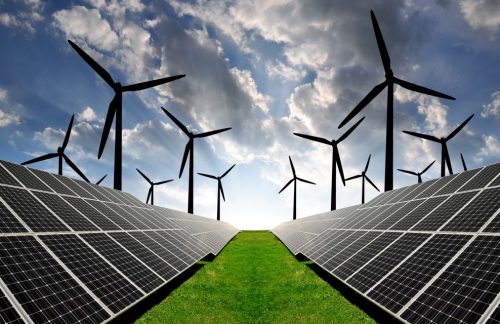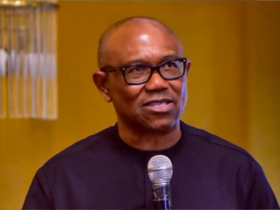
The Nigerian federal government has unveiled plans to generate 340,000 jobs by 2030 and an impressive 840,000 jobs by 2060 through a bold transition to renewable energy sources.
The Minister of Power, Adebayo Adelabu, revealed this during the second edition of the German-Nigerian Symposium on Green Energy on Monday.
Adelabu emphasized that the energy transition is not only geared towards achieving net-zero emissions by 2060 but also aims to provide economic development and ensure a consistent supply of quality power.
The government’s Energy Transition Plan (ETP) seeks to eliminate reliance on diesel and petrol generators by expanding power generation capacity in the country.
“Nigeria is committed to delivering adequate, renewable and affordable power to its citizens in a sustainable manner,” reiterated Adelabu. “The implementation of Nigeria’s Energy Transition Plan (ETP) will not only provide economic development but also result in significant job creation, with up to 340,000 jobs by the year 2030 and 840,000 by 2060.”
Gas is expected to play a pivotal role in Nigeria’s transition, with the ETP opening substantial investment opportunities in solar energy, green hydrogen, and electric vehicles.
Adelabu noted that the country requires $1.9 trillion to achieve net-zero emissions by 2060, presenting a $32 billion investment opportunity based on ongoing energy transition programs and projects.

READ ALSO: Minister of Power Survives Aircraft Emergency Landing in Ibadan
The German-Nigerian partnership was underscored by the Ambassador of the Federal Republic of Germany to Nigeria, Annett Günther.
She emphasized the shared commitment of Germany and Nigeria to promote hydrogen production and usage, especially during the recent visit of German Chancellor Olaf Scholz to Nigeria.
The energy partnership aims to extend beyond traditional fossil fuels, focusing on the crucial role of hydrogen as the “gas of the future.”
Dr. Markus Wagner, the Country Director of GIZ Nigeria & ECOWAS, echoed the sentiment, emphasizing the revolutionary potential of green hydrogen in transforming the energy landscape.
Recognizing its ability to reduce carbon emissions, diversify energy sources, and stimulate economic growth, Wagner underscored the importance of embracing green hydrogen as a cornerstone of sustainable development.








Leave a Reply